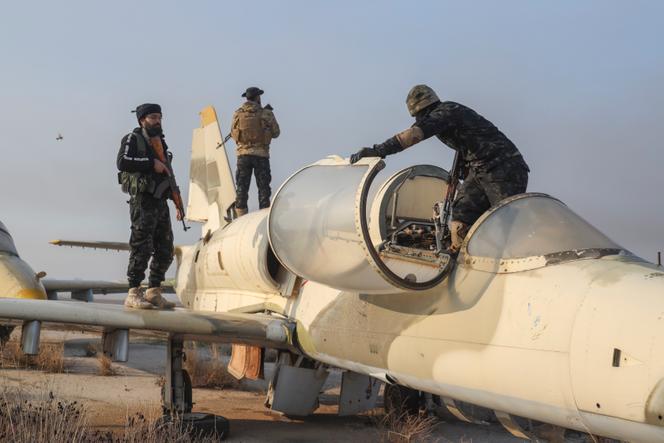


The Kremlin is suffering both a political and military setback in Syria. The intervention of Russian aircraft in rebel sectors in the northwest of the country has not prevented the regime of Bashar al-Assad, an ally of Moscow and Tehran, from losing control of Aleppo for the first time since the start of the war in 2011. This defeat, inflicted by the offensive launched on November 27 by the Islamist group Hayat Tahrir al-Sham (HTS) and its Turkish-backed allies, can be explained in Moscow's eyes above all by the Syrian army's weaknesses.
According to Ruslan Pukhov, director of the Center for Strategy and Technology Analysis, a Moscow think tank on military issues, "Faced with the largely underestimated restructuring carried out by the head of HTS to create a real military organization, there are many problems in the Syrian ranks: insufficient salaries, incompetent commanders, corruption, demobilization of battle-hardened soldiers, economic difficulties due to US sanctions. This is nothing new. The real problem is that this negligence at the head of Syria has ended up being passed on to its allies, including us."
In the face of this setback, there was almost no reaction from Moscow, where rumors had been circulating that Assad and his family were coming to take refuge. Putin, who did not speak publicly, and his Iranian counterpart, Masoud Pezeshkian, affirmed their "unconditional" support, according to a press release, following their telephone conversation on Monday, December 2. Russia "continues to support" Damascus to "stabilize the situation," added Kremlin spokesman Dmitry Peskov. But he did not indicate how this support might be increased. Nor did he react to images of the HTS rebels who, now only 50 kilometers from the Russian naval base at Tartus, displayed like trophies heavy weapons delivered by Moscow to Damascus.
This virtual absence of public reaction from the Kremlin can be explained by Putin's reluctance to act under pressure. In 2015, with the crucial support of Moscow and Tehran, Damascus succeeded in gradually regaining control of a large part of the country and, in 2016, of Aleppo, Syria's economic center. On the other hand, the current situation is a blow to Russia's image, according to Anton Mardasov, a Washington-based research associate at the Middle East Institute. Mardasov questions the effectiveness in recent days of the Russian air force, which, hindered by the weakness of Syrian intelligence, has primarily struck at "previously reconnoitered targets in the rear of HTS, which may affect the duration of the opposition offensive in the future. But this does little to impede the advance of fighters." The decline in the Russian army's capability can be explained above all by the concentration of its forces in Ukraine. Russia lacks men and funds "but also really competent generals, since Syria for the last two years has been essentially an exile for ineffective and seriously mistaken generals," added Mardasov.
You have 25.77% of this article left to read. The rest is for subscribers only.
